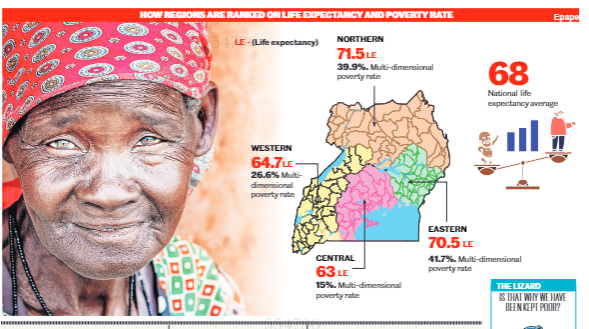Government to make U-turn on districts remitting local revenues to treasury

Local Government minister Raphael Magyezi addresses Chief Administrative Officers (CAOs) at a meeting in Kampala on February 23, 2024. PHOTO/SYLVIA KATUSHABE
What you need to know:
- Mr Herbert Humphrey Kyasa, the chairperson of Goma Division in Mukono Municipality said remitting local revenues to the national treasury has crippled their operations and the public currently view them as leaders who cannot deliver to their expectations.
The minister of Local Government has said government is considering reversing a directive requiring districts to remit all locally generated revenue to the national treasury.
This follows persistent outcries from district leaders that the directive is failing service delivery as a result of late remittance of quarterly releases.
Mr Raphael Magyezi said a recent cabinet meeting agreed with the parliamentary decision to reverse the directive and local governments regain full control over their taxes and plan accordingly.
“It is really inappropriate that we take revenue collected from local governments to the centre. So, in the recent Cabinet meeting we concurred with the parliamentary decision about one and half months ago to return powers to the rightful owners so that they can handle as they’ve planned. Now my major role as a line minister is to liaise with my counterparts in Finance to table a Bill making amendments in the Public Finance Management Act to have your powers reverted,” Mr Magyezi said during an event at Mukono Mayor’s Gardens on July 24. The event was held to sign a new contract awarded to the China Communications Construction Company Ltd to undertake construction works for the 8.67 kilometre Road worth Shs46 billion under the five-year-Integrated Urban Development Master Plan. The road works will last 18 months.
The Ministry of Local Government under the new arrangement to allow local governments spend their locally collected revenues will require district accounting officers to use automated revenue management system, E-logRev, to wire money to the centre and this according to the government is aimed at increasing revenue collection in local governments.
The online tool was introduced through the Ministry of Local government in 2017 where local tax payers were registered and payments are made online to promote transparency in matters of accountability for public funds.
Mr Magyezi has urged accounting officers at districts to exercise transparency in whatever they do.
“Corrupt officials were among the many reasons why revenue generated at districts was taken to the centre. Let us observe transparency and account for every penny sent to the districts,” he said.
Mr Herbert Humphrey Kyasa, the chairperson of Goma Division in Mukono Municipality said remitting local revenues to the national treasury has crippled their operations and the public currently view them as leaders who cannot deliver to their expectations.
“This system defies the whole concept of decentralization since our powers were usurped by the centre. We only survive on their mercy and quarterly releases hardly come on time which greatly affects our performance,” he said.
Mukono District Chairperson Rev. Peter Bakaluba Mukasa, said ever since the directive was implemented, many districts use borrowed money especially in times of emergency ,which attract interest.
“We have been borrowing money from money lenders and upon receiving our quarterly release, which sometimes delay. We pay back the money with interest which has greatly affected us,” he explained.
At the onset of decentralization in 1993, government envisioned under the Local Government Act that power was to be devolved to local authorities, which would foster political and administrative participation among the ordinary citizens and, therefore, help in improving service delivery and solving community needs.
However, the 2017 directive where local governments were ordered to send locally generated revenue to the centre has since been viewed by local government leaders as an indirect way of usurping their powers since they can no longer decide when to utilize their money.



